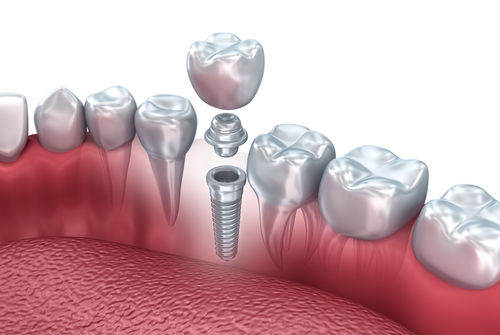Gingivitis is a painful condition that inflames the gums. This is usually caused by plaque build-up on the teeth. It typically occurs to one degree or another in most adults. This is a form of gum disease that typically causes mild symptoms, though if left untreated, even the best dentist will tell you it can cause lesions to form on and around the gums, resulting in tooth loss.
Here are other essential things to remember concerning this condition:
- The most common cause is bacterial buildup around the teeth.
- The main symptom is red, puffy gums that may bleed when a person brushes their teeth.
- Gingivitis, caused by poor dental hygiene and smoking, may occur when plaque and tartar build-up on the teeth and begin to irritate the gums.
The rest of the article details gingivitis’s types, causes, and symptoms. It also talks about what a person can do to treat and prevent this condition.
Getting the Info on Gingivitis
Gingivitis affects the gums, a soft tissue that grows around the teeth. The condition is caused by plaque buildup and can cause inflammation, pain, and sores in the gums.
At least two types of gingivitis exist.
- Plaque-induced gingivitis occurs when plaque irritates the gums; this type usually causes mild symptoms.
- Non-plaque-induced gingival lesions arise due to a bacterial or fungal infection or allergies and reactions to foreign objects such as dentures. These types are typically more intense than plaque-induced diseases.
Plaque-induced diseases can worsen if not treated adequately. These can eventually progress to periodontitis, another more severe form of gum disease that can lead to the loss of teeth and give even the best dentist in Manassas a tough time.
Gingivitis Causes and Risks
The most typical cause of gum disease is the accumulation of plaque, a biofilm that naturally forms on teeth in reaction to bacteria. Plaque forms as bacteria attach to a tooth’s smooth surface, leading to a tartar buildup that adheres closely to the gums.
Tartar buildup can trigger immune responses that lead to redness or swelling of the gums. As this inflammation persists, the immune system can cause additional tissue damage, potentially leading to the loss of the tooth. Only the best dentist can remove tartar buildup, which commonly occurs at the gum line.
When a person has gum inflammation, the cause can generally be traced to one or more underlying conditions, including cancer and infections. In addition, certain risk factors may increase a person’s vulnerability to plaque buildup and gum diseases, such as:
- Hormonal changes: This may occur during puberty, menopause, the menstrual cycle, and pregnancy. The gums might become more sensitive over time, raising the risk of inflammation.
- Menopause: When a woman reaches menopause, estrogen production decreases, raising the risk of gum disease.
- The menstrual cycle: Researchers have found that oral health suffered the most during certain phases.
- Pregnancy: During the early stages of pregnancy, a woman’s hormones fluctuate considerably.
- Smoking: Smokers are more likely to develop gingivitis than those who aren’t.
- Drugs: Some medications reduce saliva production and can impact oral health.
- Age: The more likely older people will contract gingivitis.
- Family history: Like any familial sicknesses, those whose parents have had gingivitis have a higher risk of developing it.
Conclusion: Treatment
For such a complicated dental condition, gingivitis can be addressed early with preventive measures. Brush and floss once daily to avoid plaque from building up around the teeth and gums. Regular dentist visits also help, so always get checked twice a year, every six months, just to be sure.
Book your next visit to the best dentist in Manassas at Liberia Dental Care! We provide unique dental treatments to patients of all ages with pediatric, general, and cosmetic dental care services. Rediscover a healthier smile today!









